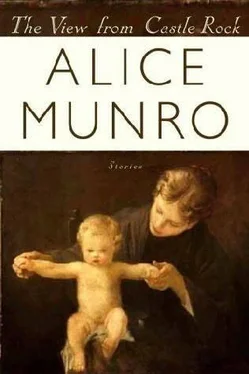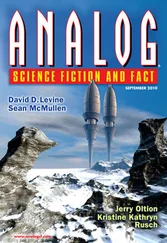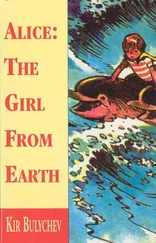Mary had the children bid farewell to their father one by one. Even Tommy said it, eager to copy the others. Jamie’s voice was weary and without expression, as if he had been made to recite something at school.
The baby fretted in Mary’s arms, perhaps missing Becky and her smell. What with that, and the thought of Andrew waiting, in a hurry to be off, and the self-consciousness, the annoyance roused in her by Jamie’s tone, Mary’s own good-bye was quick and formal, there was no heart in it.
Jamie had a good idea of what his father would have thought of that. That business of trotting them all up there to say goodbye to a stone. His father did not believe in pretending one thing was another and he would have said that a stone was a stone and if there was any way of speaking to a dead person, and hearing back from them, this was not it.
His mother was a liar. Or if she didn’t lie outright, she at least covered things up. She had said his uncle was coming but she had not said-he was sure she had not said-that they were going back with him. Then when the truth came out she claimed she had told him before. And most falsely, most despicably, she had claimed that such a thing was what his father would have wanted.
His uncle hated him. Naturally he did. When his mother had said in her hopeful, foolish way, “This is my man of the house now,” his uncle had said, “Oh, aye,” as if to say that she was badly off, if that was all she could come up with.
In half a day they had left the prairie and its shallow, brushy hollows behind. And that was even with the oxen that walked no faster than a man. Not half as fast as Jamie, who was disappearing ahead of them and reappearing when they rounded a curve and disappearing again, and still seemed to be gaining.
“Don’t they have any horses where you are?” Johnnie asked his uncle. Horses occasionally passed them, in a whirl of dust.
“These are the beasts have the strength,” said his uncle after a pause. Then, “Did you never hear tell about keeping quiet until you’re asked to speak?”
“It’s because we have such a load of belongings, Johnnie,” said his mother, in a voice that was both a warning and a plea, “and when you get tired of walking you can climb up here and they’ll pull you along too.”
She had already hauled Tommy up on her knee and was holding the baby on the other side. Robbie heard what she said and took it as an invitation, so Johnnie hefted him up to crawl onto the sacks at the back.
“You want up there with them?” said his uncle. “Now’s the time to speak up if you do.”
Johnnie shook his head, but apparently his uncle didn’t see him, because the next thing he said was, “I need an answer when I speak to you.”
Johnnie said, “No sir,” the way they were taught in school.
“No, Uncle Andrew,” said his mother, confusing things more because this uncle wasn’t her uncle, surely.
Uncle Andrew made an impatient noise.
“Johnnie always tries to be a good boy,” his mother said, and though that should have pleased Johnnie, it didn’t.
They had entered a forest of great oak trees whose branches met over the road. In the branches you could hear and sometimes see the flight of the bright orioles, the cardinals, the red-winged blackbirds. The sumac had put its creamy cones out, coltsfoot and columbine were blooming, and the mullein was standing up straight as soldiers. Wild grapevine had wrapped some bushes so thickly that you would think they were feather beds, or old ladies.
“Did you hear any tales of wildcats?” said Mary to Andrew. “I mean, when you came along this road before?”
“If I did I didn’t listen to them,” said Andrew. “You’re thinking of the young lad up ahead? He minds me of his father.”
Mary did not answer.
Andrew said, “He won’t be able to keep it up forever.”
This proved to be the case. Around the next curve they did not see Jamie ahead. Mary did not mention it, lest Andrew think she was foolish. Then another view of a good stretch of level road, and he was not there. When they had gone some distance Andrew said, “Just turn your head like to look at the young ones in the back, don’t be taking any heed of the road.” Mary did so, and saw a figure trailing them. It was too far to make out his face, but she knew it was Jamie, scuffing along at a much reduced pace.
“Hid in the bush till we got by,” said Andrew. “Are you easier now about the wildcats?”
In the evening they stopped near the Indiana border, at a crossroads inn. The woods were not cut far back, but there were a few fenced fields, and both log and wood-frame buildings, barns or houses. Jamie had walked all the way, getting closer to the wagon as the afternoon darkened. That happened quickly under the arch of the trees-when they came out into the clearing it was surprising to see how much of the daylight they still had left. The boys on the wagon had waked up-Johnnie had taken his place up there too, once the dark came on-and they were all holding quiet, taking in the new place and the people around. They had known about inns in Joliet-all told it had three-but they had never been let wander around such places.
Andrew spoke to the man who came out. He asked for a room for Mary and the baby and the two little boys, and arranged sleeping room on the porch for himself and the two older ones. Then he helped Mary down and the boys jumped off and he took the cart around to the back, where the man said it was safe to store their goods. The oxen could go in the pasture.
And there was Jamie in the midst of them. His boots were hanging round his neck.
“Jamie walked,” said Robbie, solemnly.
Johnnie addressed Mary. “How far did Jamie walk?”
Mary said she had no idea. “Enough to wear himself out, anyway.”
Jamie said, “No it wasn’t. I’m not even tired. I could walk that far again and I wouldn’t be tired.”
Johnnie wanted to know if he’d seen any wildcats.
“No.”
They all walked across the porch, where some men were sitting in chairs or on the railings, smoking. Mary said, “Good evening,” and the men said, “Good evening,” looking down.
Walking beside his mother, Jamie said, “I saw a person.”
“Who was it?” said Johnnie. “Was it a bad person?”
Jamie paid him no attention. Mary said, “Don’t tease him, Jamie.
Then with a sigh she said, “I guess you ring this bell,” and did, and a woman came out of a back room. The woman led them upstairs and into a bedroom and said she would bring water for Mary to wash herself. Boys could wash out back, she said, at the cistern. There were towels out there, on a rack.
“Go on,” said Mary to Jamie. “Take Johnnie with you. I’ll keep Robbie and Tommy here.”
“I saw a person you know,” said Jamie.
The baby was wet through her soakers and would have to be changed on the floor, not the bed. Down on her knees, Mary said, “Who was that? Who that I know?”
“I saw Becky Johnson.”
“Where?” said Mary, rocking back. “Where? Becky Johnson? Is she here?”
“I saw her in the bush.”
“Where was she going? What did she say?”
“I wasn’t near enough to talk to her. She never saw me.”
“Was this back near home?” Mary said. “Think now. Back near home or nearer here?”
“Nearer here,” said Jamie, considering. “Why do you say near home when you said we’d never go back there?”
Mary disregarded that. “Where was she going?”
“This way. She just went out of sight in a minute.” He shook his head, like an old man. “She wasn’t making any noise.”
“That’s the way Indians do,” Mary said. “You didn’t try to follow her?”
“She was just ducking along in and out the trees and then I couldn’t see her anymore. Else I would have. I’d have followed her and asked her what she thought she was doing.”
Читать дальше












